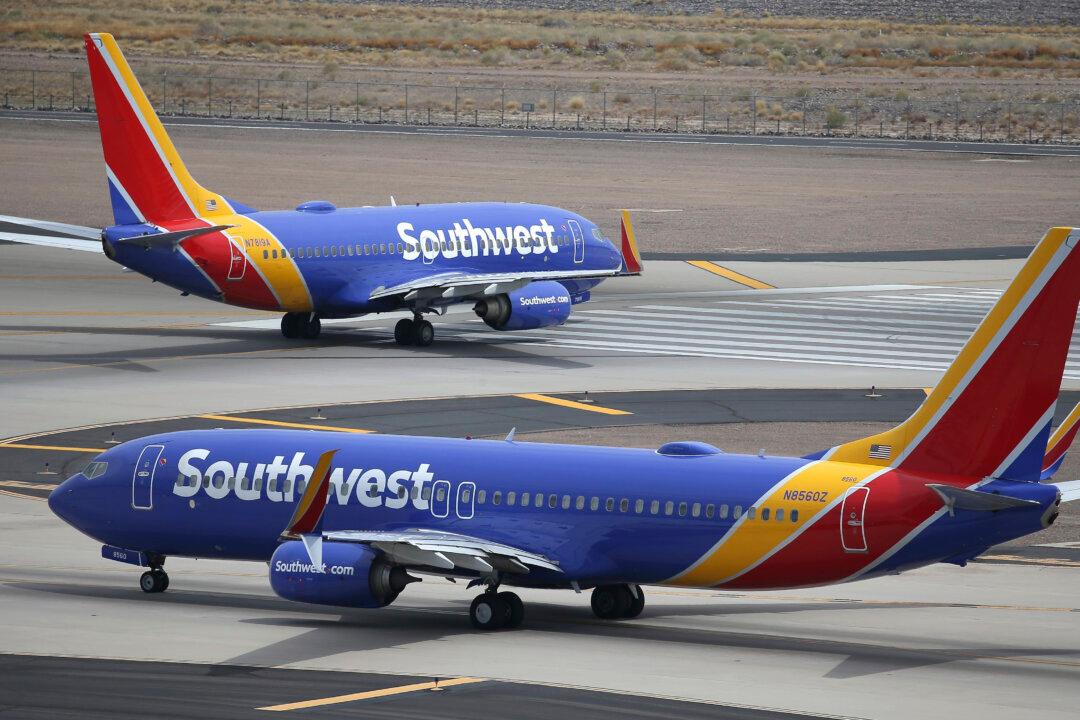Southwest Airlines continues to fly airplanes with safety concerns while federal officials do a poor job overseeing the airline, a government watchdog said on Feb. 11.
The airline has flown more than 150,000 flights on 88 jets it bought on the used-plane market and which had unconfirmed maintenance histories, the Transportation Department’s inspector general said in a report. That put more than 17 million passengers at risk, according to the report.





